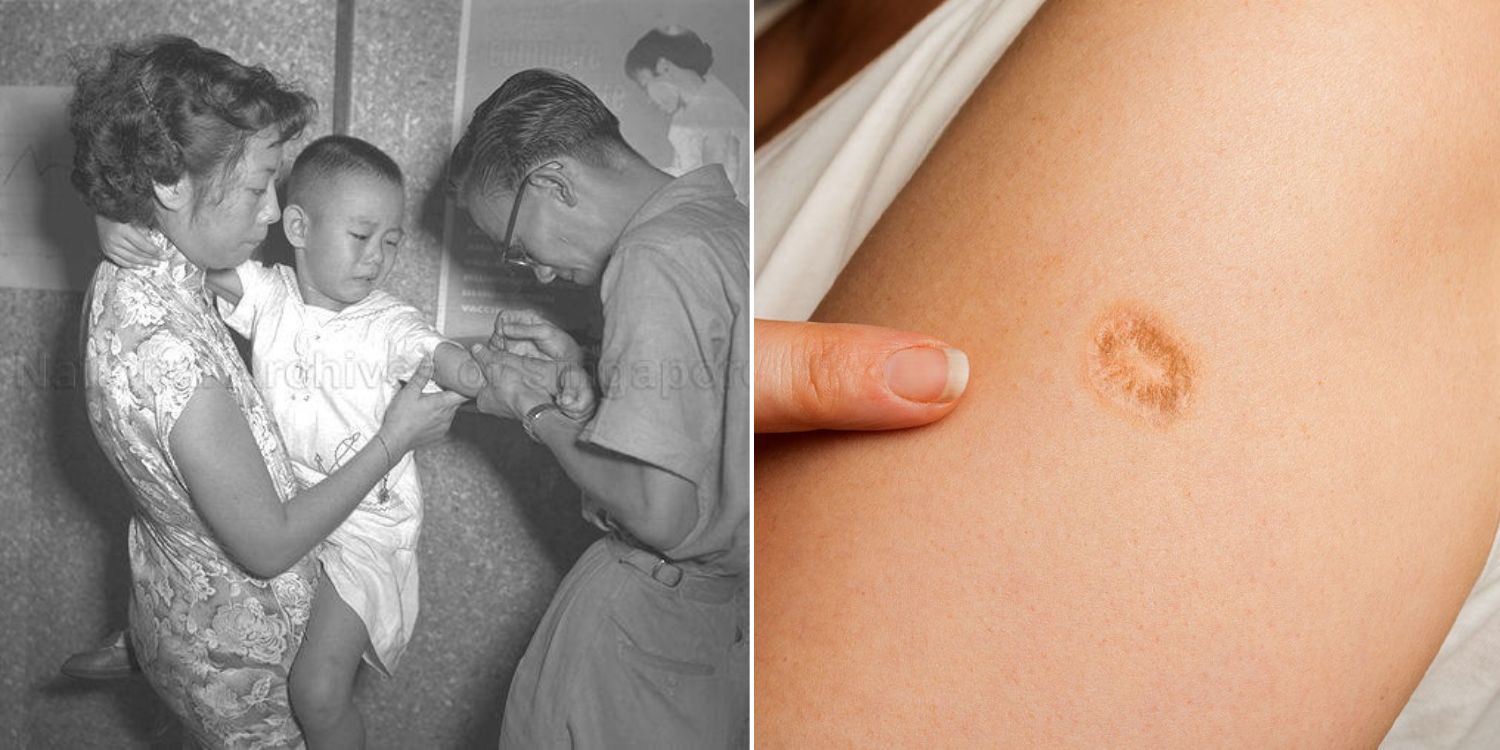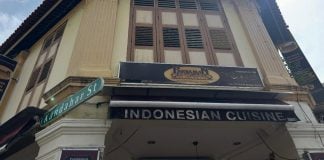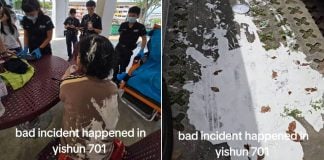Singaporeans born before 1981 received smallpox vaccination, giving them some mpox immunity
Older Singaporeans worried about the mpox Clade I strain may take some comfort in knowing that they have some immunity against the disease.
That’s because those aged 45 and above would’ve received a smallpox vaccination as a child.
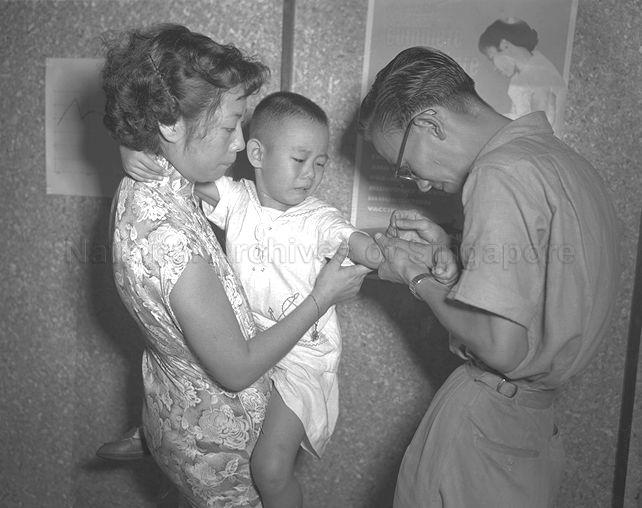
A child in Singapore receiving a smallpox vaccine in 1959. Source: National Archives of Singapore
Smallpox vaccination required in Singapore till 1981
In a news release on Wednesday (4 Sept), the Ministry of Health (MOH) said smallpox vaccination was required in Singapore until early 1981.
Thus, Singaporeans born in that year and before would have received the jab as a child.
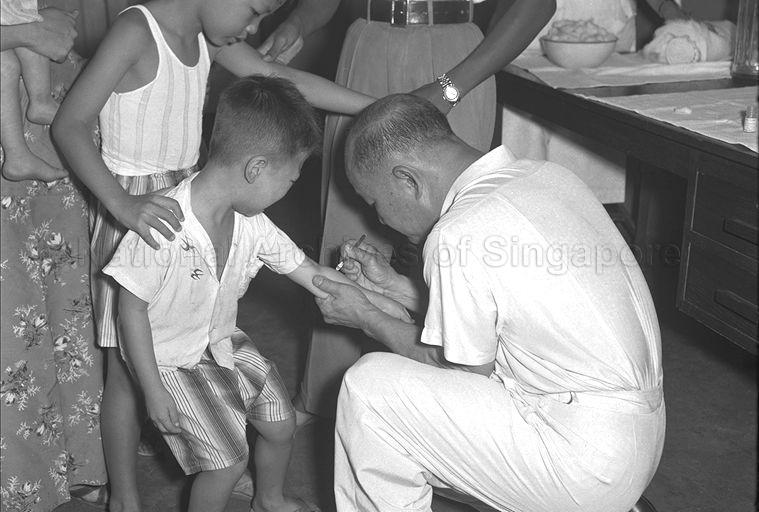
A child in Singapore receiving a smallpox vaccine in 1959. Source: National Archives of Singapore
Smallpox vaccination was discontinued in Singapore after the World Health Organization declared in 1980 that smallpox had been globally eradicated.
Smallpox vaccination also provides protection against mpox
Though smallpox was eradicated, a benefit of the vaccine was that it renders “cross-protection” against mpox, MOH said.
That means the smallpox vaccine also provides protection against mpox.
According to the United States Centers for Disease Control and Prevention (US CDC), a study of 162 people aged 50 and above in Spain showed that 68.5% had detectable antibodies. Those from 71 to 80 years old had the highest coverage of 78% with antibodies.
In fact, the Jynneos vaccine approved for use in Singapore against mpox also provides protection against smallpox, MOH added.

Source: World Health Organization
Those with smallpox vaccination scar will have some mpox immunity
Thus, MOH said “there will be some mpox immunity” among a significant segment of the Singapore population, adding:
Population-wide mpox vaccination is not recommended for now.
Also, there is no vaccination recommendation for travellers to mpox-affected countries.
In a Facebook post on Wednesday, Health Minister Ong Ye Kung said Singaporeans may check for a “little oval patch of wrinkled skin” on their left arm that would be a smallpox vaccination scar.
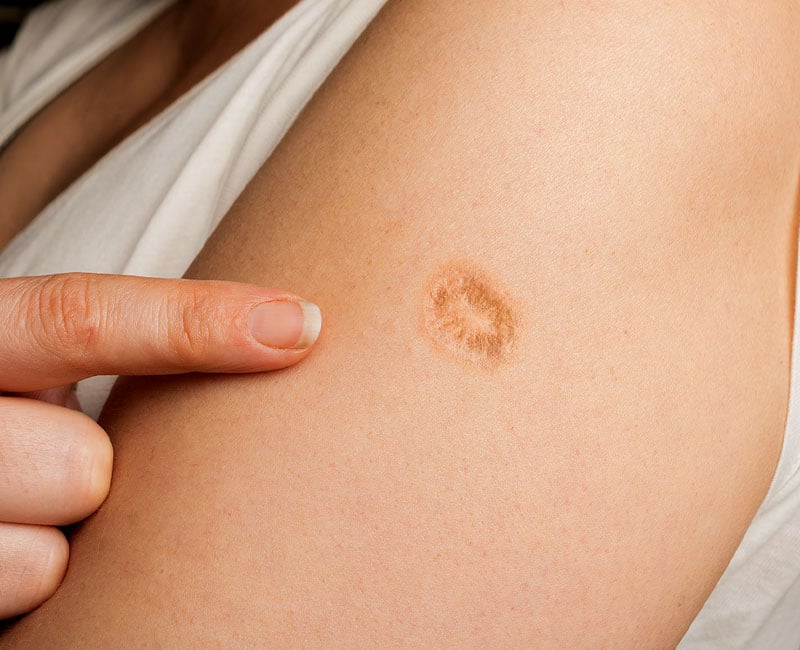
Source: Cleveland Clinic
Mpox vaccine to be offered to healthcare workers & close contacts of cases
Nevertheless, MOH will offer the mpox vaccine to two groups of people in Singapore.
The first group comprises healthcare workers, “who are at the highest risk of exposure to mpox”. Jynneos will be thus offered for free to them to provide additional protection.

Source: Tan Tock Seng Hospital on Facebook
The second group would be close contacts of confirmed mpox cases. The Expert Committee on Immunisation has recommended that a single dose of Jynneos be offered and administered within 14 days of exposure, while they are in quarantine.
This will reduce their risk of the disease, MOH said.
Singapore’s current supply of Jynneos is “projected to be sufficient” based on this vaccination strategy, MOH noted, adding,
We will continue to monitor the situation and adjust our vaccination strategy accordingly, as the mpox situation and vaccine supplies evolve globally.
Close contacts of confirmed cases to be quarantined for 21 days
As for other measures, MOH said suspected Clade I cases will be conveyed to hospitals for further assessment and testing.
When a Clade I case is confirmed, contact tracing will be immediately initiated and close contacts quarantined in a designated government quarantine facility for 21 days.
Within the community, mask-wearing is not recommended for people who are well as mpox is spread mainly through close physical contact, though MOH added:
However, should there be evidence of significant respiratory transmission, such as outside of households and in public areas, MOH will consider implementing masking on public transport, and in crowded indoor places.

The mpox Clade I virus is “far less transmissible” than respiratory viruses such as flu or Covid-19, MOH noted.
It was also previously announced that mpox screening would take place at Changi and Seletar airports, as well as our sea checkpoints.
Mpox screening starts at S’pore airports, 13 confirmed cases detected here in 2024
Mpox a troublesome virus that Singapore can manage: Ong
Mr Ong said there are no cases of the mpox Clade I strain in Singapore as yet, “we should expect it to arrive at some point”.
During a press conference on Wednesday, he said that while it’s “a troublesome virus”, it’s one that Singapore can manage.
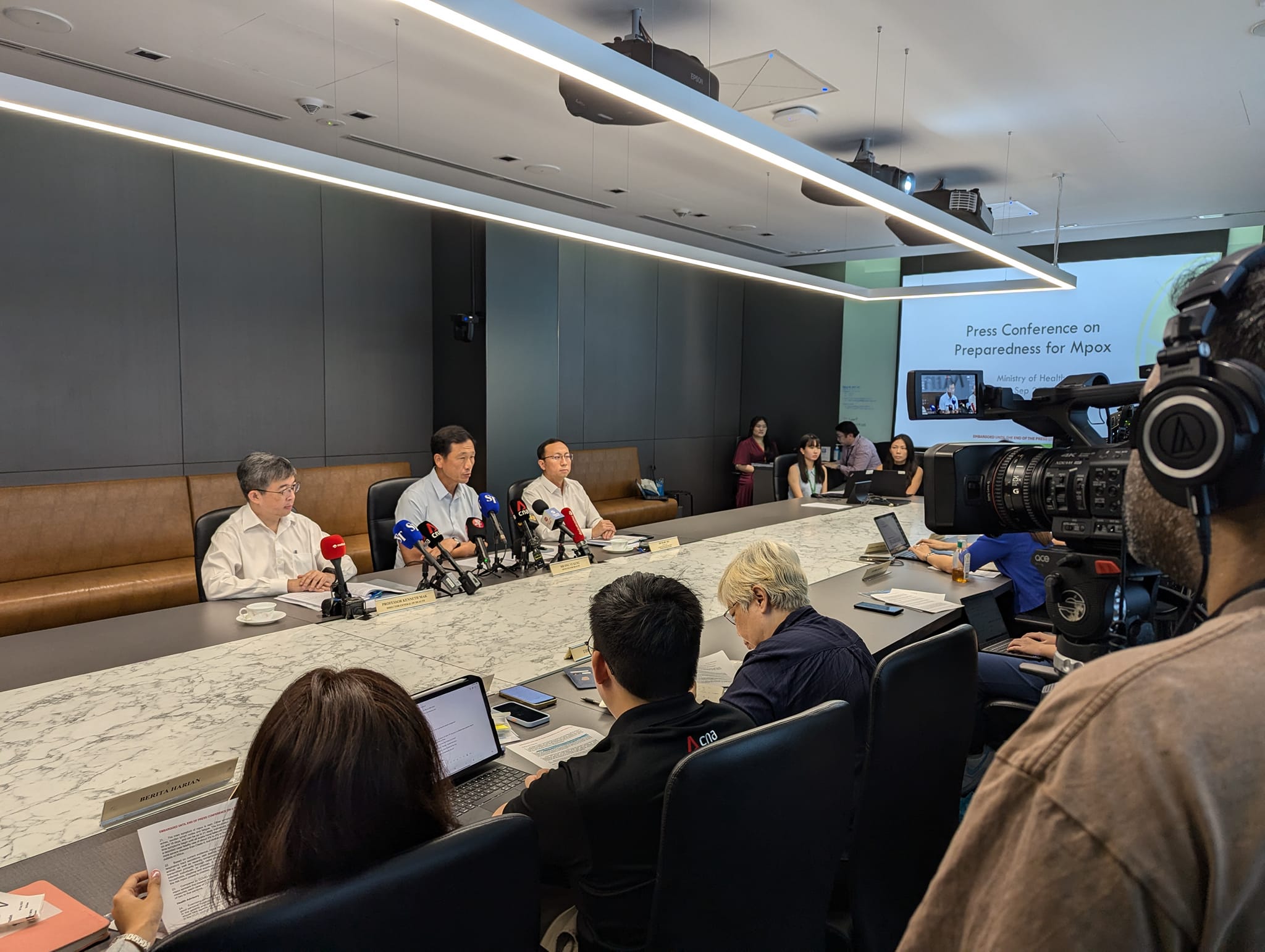
Source: Ong Ye Kung on Facebook
He also assured that:
It will very unlikely lead to the kind of disruption that happened during Covid-19.
However, the authorities will respond to mpox based on its unique characteristics, he said, adding:
Never fight the last war. Every virus in every pandemic is different.
Thus, the current plans are based on what we know about the virus so far and we should be prepared to change our plans as we understand more in the coming months.
Have news you must share? Get in touch with us via email at news@mustsharenews.com.
Featured image adapted from National Archives of Singapore and Cleveland Clinic.
